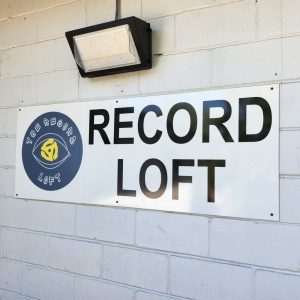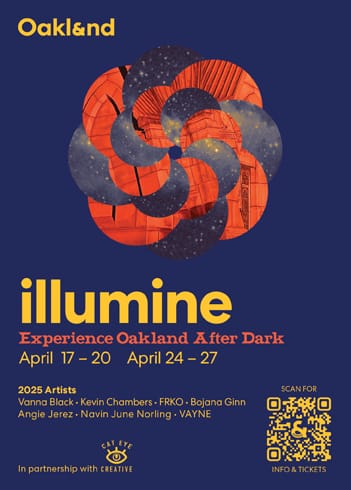By Henry Bryant
In the 2015 Georgia Legislature, House Bill 595 removed “Atlanta” from the name “Atlanta Fulton Public Library System” (AFPLS). Also removed was Atlanta-in-Dekalb’s only representation for library governance. The bill also curtailed any city of Atlanta oversight of the system that the city of Atlanta originally built. This bill passed and was signed into law by Governor Deal last spring.
In the beginning there was the Atlanta Public Library. In its wisdom and through the generosity of industrialist Andrew Carnegie, the beautiful Carnegie Library was built in today’s Margaret Mitchell Square at Peachtree Street, Forsyth Street, and Carnegie Way. (Some of the pediments of the building now lie in the weeds of the old Atlanta Prison Farm south of the Porch Press area.) Somewhere along the way, funding for libraries was made available by the State of Georgia to the counties. The city of Atlanta continued to supplement the state funding, eventually providing for its citizens many more libraries per capita than any other Georgia jurisdiction. After a while, the powers that be in Atlanta began to view its libraries as a source of red ink rather than a valuable resource.
At a pivotal point in the early 1980s, Atlanta decided that it would give its libraries to Fulton County thus taking care of the red ink. Everyone forgot that three Atlanta Libraries stood in Dekalb County. They also forgot that many Fulton residents used those libraries. Of course many Atlanta in Dekalb residents enjoyed the use of libraries west of Moreland Avenue in Fulton, including the main library downtown. When this was pointed out, without missing a beat, the Atlanta in Dekalb libraries were offered to Dekalb County. The citizens of Atlanta in Dekalb had long paid taxes to build libraries in other parts of Atlanta and now were feeling like they were being robbed. Dekalb Chief Executive Manuel Maloof said that Dekalb did not want the three libraries, using very colorful language.
The East Atlanta Community Association, along with the other neighborhood associations of Neighborhood Planning Unit W (NPU-W) and other neighborhoods that were being disenfranchised, spoke out very strongly against the loss of library service to the area, but it was already a done-deal that had been engineered by the Georgia Legislature. The neighborhoods called the media, and coverage was good enough to embarrass the politicians. Our local state representatives rallied with the voters from local neighborhoods, from South Atlantans for Neighborhood Development (SAND) and East Atlanta to East Lake and Kirkwood, from Inman Park to Lake Claire, and from Druid Hills and Virginia Highlands to Lenox/Brookhaven. All or parts of these neighborhoods have contributed to the tax digest that has supported the Atlanta libraries over the years, and many of the residents are also voters.
State Representatives John Evans and Paul Bolster from the Porch Press area led the movement to craft a solution to the dilemma that had been created. However, it took nearly four years and a statewide referendum. The referendum created a special tax district in Atlanta in Dekalb. In this district, residents would pay a tax collected by the city to be turned over to Fulton County for library services. Because those citizens would be helping to pay, “Atlanta” was added to the name “Fulton Public Library.” These Atlanta citizens pay two library taxes and get to use the Dekalb Library System while living in Dekalb.
After the referendum passed, it soon became evident that it was not enough. Because the new Atlanta Fulton Library System was governed and funded by Fulton County and the Fulton County Commission, the citizens of Atlanta in Dekalb were being taxed without representation. A new amendment was added to the bill creating AFPLS to provide representation for Atlanta in Dekalb on the AFPLS Board. Since that amendment passed, citizens have had a place to bring grievances and seek help. It is still not quite equitable since the County Commission determines the amount of money and is the ultimate arbiter of library issues. The practical application of this has been that there was absolutely no maintenance being done at the Atlanta in Dekalb branches. In addition, during this time, the branch in Candler Park was closed. It should be said here that when tax money is collected from the special tax district, it goes directly into the Fulton County general budget and gets lost. Even though the Fulton County Commission determines the amount going to AFPLS and has the final say on library board decisions, having a voice on that board has worked to represent the area for the last 30 years.
In 2015, not only has Dekalb’s Library System grown to rival Fulton’s, AFPLS continued to grow as well, adding new branches in once rural areas in North, South and West Fulton as well as Atlanta in Fulton. The demand for library services also grew. The legislators from these areas who drew up the newest bill were not around when the AFPLS was created in the 1980s. No one is sure who asked for this bill or what problem it was seeking to solve.
The East Atlanta branch library is one of two remaining libraries left in the Dekalb portion of AFPLS. It has increased circulation dramatically since moving to the new building over 10 years ago. The Friends of East Atlanta Library (FEAL) has grown to be one of the most active advocacy groups in the system. Patronage at the library continues to be at least equally distributed on both sides of the county line. Still the fact remains that the Dekalb patrons of AFPLS are being taxed without representation – something that FEAL remind us was one of the causes of The American Revolution.
What will happen next? Atlanta City Council Member Natalyn Archibong, who represents a large chunk of the affected area, is planning to convene a task force with patrons and elected officials soon to strategize about the issue. Anyone who values libraries and the service they provide to our area should be interested in working with the group and can call 404-377-6148 or email lbryant@mindspring.com.









Comments are closed.